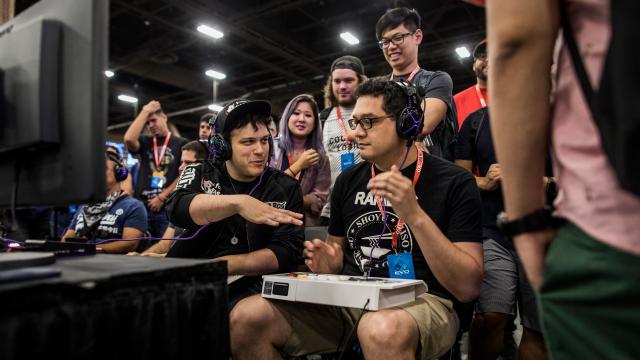Members of the fighting game community recently unveiled a code of conduct for the competitive scene. Much like a similar (and, as of December 2020, disbanded) project in the Smash community, the document is a list of common-sense rules that includes a firm stance against several forms of abuse and harassment, hygiene standards, and procedures for when these terms are violated.
Pushback was, perhaps unsurprisingly, swift after the project went live yesterday. The competitive fighting game community prides itself on maintaining an edgier atmosphere that harkens back to the arcade era, and those that exploit that ethos to be arseholes were naturally threatened by guidelines that sought to keep them in check.
“Our old piecemeal system put too much pressure on individual [tournament organisers] to make community-wide decisions and incentivized a dog-piling type of enforcement that nobody enjoyed,” David “UltraDavid” Graham, a longtime fighting game player and governing signatory, wrote on Twitter. “Having more (but not exclusively) uniform rules and enforcement can avoid these problems.”
That’s not to say there wasn’t good-faith criticism. Some feel the signatory list is too focused on the west coast, for instance. But the majority of online reactions felt obviously nitpicky for the sake of sowing doubt and confusion about something that should be overwhelmingly positive or, at the very least, worthy of the work necessary to improve its language and goals.
“This is the product of the last half year of discussions by volunteer [tournament organisers], players, streamers, etc. who wanted to help our community improve and move forward after the terrible acts that came to light last summer,” Graham continued, referencing the glut of allegations that rocked the Super Smash Bros. world last year.
Graham added that he drew from his experience crafting similar guidelines for developer-backed tours and professional gaming teams while helping write this document. And while he is only one of the over 30 names on the signatory list, he is by far the most visible and respected, and has been on the frontlines of defending the group’s intentions.
The team behind the code of conduct is encouraging tournament organisers to adopt their guidelines to impart a community-wide standard of behaviour once in-person events return.
As with the Smash scene, competitive fighting games are a community in name only, made up of individual tournaments with their own standards rather than coming under the purview of a single entity. But relying on a loose collection of events to hold bad actors accountable has led to a situation where abusers can drift from venue to venue without consequences. A central organising body like this is a good thing, and I hope to see the community embrace it as we slowly edge closer to a pandemic-free world.

Leave a Reply